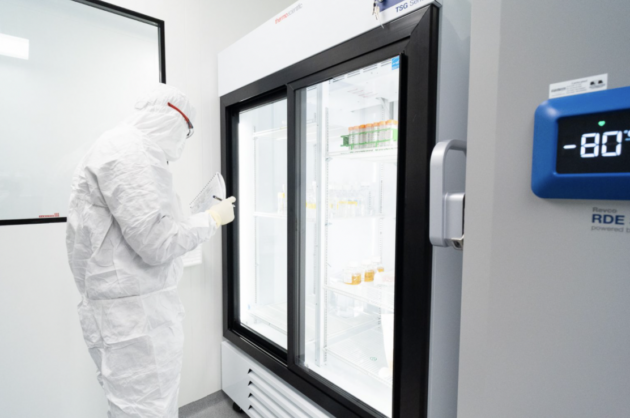
Inventprise has been slowly growing in Redmond, Wash., expanding into four research and manufacturing facilities to support early development of a host of vaccines since its founding in 2012.
The company is now set to advance an investigational vaccine for pediatric pneumococcal disease into human testing with new funding from the Bill & Melinda Gates Foundation.

The foundation will provide up to $90 million for phase 1 and 2 trials of the vaccine, dependent on Inventprise meeting development and manufacturing milestones.
Pneumonia is the main cause of infectious disease-related death in children worldwide. The disease accounts for 15% of deaths in children under the age of five and killed more than 800,000 in 2017, according to the World Health Organization.
Childhood pneumococcal disease can be caused by dozens of microbes, but current vaccines do not offer full protection. Inventprise’s investigational vaccine protects against 25 bacteria, more than currently-used shots.
“The vaccine we have designed has increased the number of strains to increase the umbrella of protection,” CEO Subhash Kapre told GeekWire in an email.
The company has grown to more than 100 employees and previously received more than $100 million from the Gates Foundation.
Inventprise also provides contract services to life sciences companies at its R&D and manufacturing facilities in Redmond. Its fourth facility, at 70,000 square feet, will be fully operational in 2022.
Contract services form only a small revenue stream now, but the company aims to build out that part of its business next year.
Inventprise’s pneumococcal vaccine is built on technology that enables multiple vaccine components to be strung together without losing vaccine potency. The key is a “linker” molecule that connects the components and increases their visibility to the immune system, enabling a strong protective response.
Waning effectiveness can plague vaccines as more components are added. But Inventprise’s linker enables the development of “conjugate” vaccines with multiple components but high potency.
The company says its pneumococcal vaccine candidate outperforms approved shots in preclinical studies.
The linker was developed in-house after the company’s founding by Kapre, a former executive at the Serum Institute of India, a large vaccine manufacturer.
Kapre’s team at Inventprise first tested the linker in preclinical studies for a vaccine against Haemophilus influenza Type A.

“Surprisingly, applying it to other conjugate products we found it gave similar high results, and we quickly realized we had a platform technology at hand which could be used for developing numerous conjugate vaccines,” said Kapre. The linker is being used in six other vaccine candidates at Inventprise.
The company has preclinical programs for rotavirus, shigella, yellow fever, meningitis and other diseases. It also is in the early stages of developing a pediatric COVID-19 vaccine to protects against several variants.
The new funding is part of the Gates Foundation’s strategic investment fund to support the private sector. If the new vaccine is successful, it will be accessible and affordable for low and middle-income countries, according to the foundation.
“The scientific community must strive to develop more effective vaccines to protect the most vulnerable children from more strains of this devastating disease,” said Keith Klugman, director of the foundation’s pneumonia program, in a press release. In addition to pneumonia, Pneumococcal bacteria can also cause ear and sinus infections and other diseases.
The market is potentially huge. Pfizer’s Prevnar-13 vaccine pulled in $5.95 billion in sales for the pharma giant last year.
Pfizer and Merck have been competing to develop new pneumococcal vaccines. This summer, the U.S. Food and Drug Administration approved Pfizer’s new 20-strain vaccine and Merck’s 15-strain shot in adults. Both companies are aiming for approval for children, which are 80% of the market.
Future iterations of Inventprise’s pneumococcal vaccine may generate even broader protection. The company is now testing a shot against 32 bacterial strains. Kapre said the researchers will “keep adding as many strains as technology will allow.”



